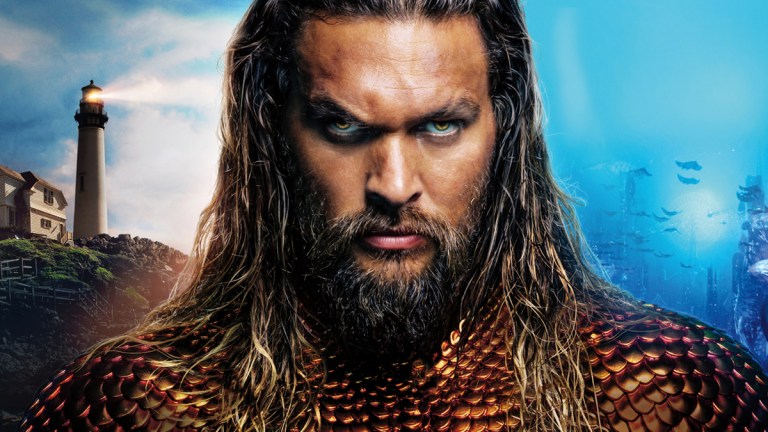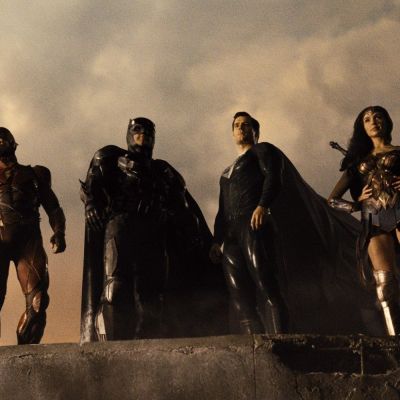Aquaman 2 Will See Director James Wan Embracing His Horror Roots
Planet of the Vampires, the 1965 campy classic, is a heavy inspiration for the horror-driven plot of Aquaman and the Lost Kingdom, says director James Wan.

While production on DC sequel Aquaman and the Lost Kingdom has been underway in the UK for about a month now, the plot of the Jason Momoa-starrer mostly remains obscured under deep water. However, returning director James Wan has provided an intriguing tidbit that somewhat clarifies the plot issue, citing—of all things—cult classic 1960s Italian horror film Planet of the Vampires as its main source of inspiration. While Wan came into the trident-towing hero’s first solo film having helmed drastically different modern horror classics, the reference nevertheless indicates his genre-hybrid intentions.
James Wan seems to be signaling that his once-unlikely comic book movie franchise, Aquaman, is getting an injection of genre themes that only a directorial maestro of movie scares such as himself can administer. Indeed, while little to nothing is known about the 2022-scheduled sequel outside of its titular reference to a “Lost Kingdom” (more on that in a moment), his name-drop, made in an interview with Total Film, evoking the seemingly-random Planet of the Vampires certainly feels like a wild, left-field tease, especially for a sequel that has been described in the past as having a more serious tone than its predecessor.
“Aquaman 2 is very heavily inspired by Planet of the Vampires,” Wan said. “You can take the boy out of horror but you can never take the horror out the boy.” While there’s a level of cheekiness to his statement, there are some concepts to which it can aptly apply.
Contextually, Planet of the Vampires was released in 1965, manifesting as a schlocky (even for its time) Italian space sci-fi product of director Mario Bava. The film centers on the ordeal of two exploratory spaceships, in which mysterious, unseen alien life on the surface of planet Aura possess the bodies of some crew members, even reanimating the corpses of those already dead. Thusly, the rapidly-dwindling population of unpossessed members are thrust into a desperate struggle for survival. The film was the kind of double-feature fodder typical of the time, glaringly showcasing its production’s limited resources, strictly-organic scene elements, minimal optical effects and creaky wooden spaceship sets.
Yet, the film has nevertheless become widely regarded as a cult classic. It is also frequently cited as a tonal and thematic influence for director Ridley Scott’s 1979 classic, Alien. In fact, while Scott and screenwriter Dan O’Bannon initially claimed they hadn’t seen the film, O’Bannon later walked back the denial, and went so far as to admit that the famous giant remains of the “Space Jockey” found by the crew of the Nostromo was a concept copied from one of Planet of the Vampires’ signature scenes, in which their crew discover an oversized humanoid skeleton in the ruins of a presumably-ancient spacecraft.
Yet, the “horror” within himself that Wan mentioned earlier is a far cry from anything even closely resembling Planet of the Vampires, having successfully manifested in modern watershed classics in the genre, going back to his big break in 2004 with the original Saw, which laid the groundwork for the popular 2000s-era sub-genre that is derisively referred to as “torture porn.”
However, he also branched off into supernatural-centric offerings like 2007’s Dead Silence, and, more notably, the sequel-spawning 2010 film Insidious and 2013’s The Conjuring, which spawned an entire shared universe of horror films—that notably bears its name—consisting of direct sequels and prequels, along with spinoffs such as the Annabelle movies and The Nun, with more to come. Consequently, the hiring of Wan for a DC tentpole the scope of Aquaman was initially seen as a rather curious development, arguably akin to a scenario in which Ilya and Alexander Salkind hired The Texas Chainsaw Massacre’s Tobe Hooper to head Superman instead of Richard Donner.
So, how would such a campy film become relevantly compared to Aquaman and the Lost Kingdom? The answer potentially lies in the open-ended nature of its title, namely its reference to the Lost Kingdom.
As Willem Dafoe’s Vulko explained in an expository scene in the first film, the planet’s ancient sea-dwelling people once lived continentally unified on the surface as a grand, prosperous society who enjoyed technological advancement during a time in which most of the world’s outsiders still thought the world was flat—notwithstanding some who, curiously enough, still do.
However, complacency led to a disaster known as the Great Fall, in which misuse of the powerful Trident of Atlan created a wave of destruction that left their land shattered and sunken into the sea. Yet, the same catastrophe also imbued those people with the power to breathe underwater, resulting in the once-unified civilization becoming segmented into separate kingdoms—Atlantis, Xebel, Fisherman, Trench, Brine, Deserters, with the seventh one, the isolated Lost Kingdom, remaining an unseen mystery to the rest. Consequently, Wan has an open book for a potential horror-movie-inspired ordeal in which Momoa’s Arthur Curry/Aquaman has to protect Atlantis against possessed and/or zombified people from the Lost Kingdom.
Outside the possibility that Wan is simply borrowing analogous concepts, the nature of how a sequel inspired by Planet of the Vampires will play out against things such as the confirmed returning threat of Yahya Abdul-Mateen II’s personal-vendetta-driven Black Manta remains a mystery. Yet, the increasingly-lost element of surprise could be Wan’s motivation behind his Vampires tease.
“Well, the first movie took a lot of people by surprise, right?” Wan said. “And that’s partially because they were not familiar with the comic book, which deals in this very lurid, strange world. People were taken aback that I didn’t throw all that stuff away and make a dark, heavy film. But I didn’t feel that would have been right for it. So, with the second film, I feel it will be easier for people to accept where we go because I’ve already laid the foundation.”
Wan certainly has experience overcoming expectations, with 2018’s Aquaman having proven that he has a clear and widely accessible vision for superhero cinema. Indeed, in a bit of trivia that still manages to surprise, the film stands as the highest-earning film in Warner’s entire DC Extended Universe continuity of films, having grossed nearly $1.5 billion worldwide—a take that tops the $822.8 million made by its widely-regarded crown jewel, 2017’s Wonder Woman, and the $657.9 million of its subsequent underperforming team-up megamovie, 2017’s Justice League.
Consequently, while many may not view Aquaman as the DCEU’s most prominent hero, he currently stands as its clear breadwinner, which makes his solo sequel arguably the continuity’s most crucial entry. Can a Planet of the Vampires style motif match such purported importance?
Aquaman and the Lost Kingdom is currently scheduled to hit theaters on Friday, December 16, 2022; a date safely distanced from the reach of the Delta variant and will hopefully remain unaffected by any other unwelcome pandemic developments.

